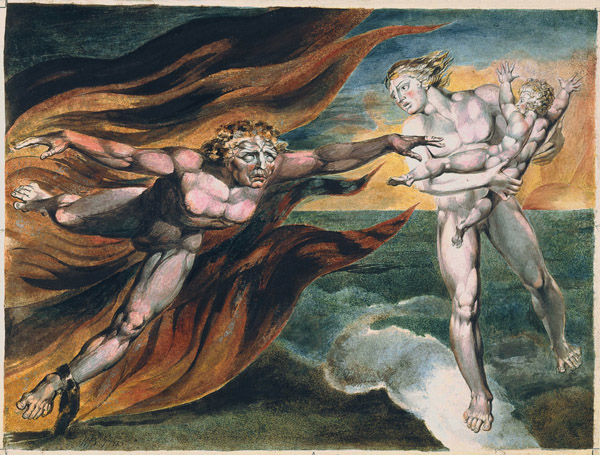“They’re Made Out of Meat” by Terry Bisson is an excellent work of fiction for many reasons. It also often appears in school curriculum due to its subject matter and creativeness. In this post, we are going to analyze the story’s background, structure, and unique POV.
“They’re Made Out of Meat” Background
Dialogue comprises the entirety of the story. As such, the reader acts as though they are simply a passive listener to the subject matter. The aliens discuss their curiosity and horror at humans as anatomical structures. This framing method creates a great deal of humor. It also removes the necessity to explain the aliens in any amount of detail. The author, in this way, does not need to needlessly elaborate on anything but the conversation. This is crucial to the theme of the story, which we will get to later.
Bisson, during an interview on The Truth Podcast, discussed the inception of the short story. The idea, he said, came from a famous author’s off-handed remark.
“I was thinking about an interview I had read or heard that Allen Ginsberg was doing with some journalist,” he stated, “and he was talking about poetry and the guy was saying that it was like they were two poets talking or something like that and Ginsberg says, ‘No, we’re just meat talking to meat.’ And somehow that got stuck in my head” (Mitchell).
Bisson said that he did not know why artists interpreted his story so many times in movies and radio. Nonetheless, he took a few guesses. Some of the reasons he cited included its its humor, short length, and that it makes the reader think.
“It gets used a lot in psychology,” he said, referencing its use in curriculum. “How can consciousness emerge in a pile of meat that looks like a pound of hamburger?” (Mitchell)
“They’re Made Out of Meat” first appeared in Omni magazine in 1991.
“They’re Made Out of Meat” Summary
The story is about two aliens on a scientific journey to locate life in the universe. They stumble upon Earth and discuss the sentient creatures they find there. One of the two aliens has discovered and possibly dissected an Earthling and tries to give the other alien all the relevant details of its discovery.
If you have ever tried to explain a new board game to somebody, then you probably know how difficult it is to describe a hitherto unknown entity. More specifically, the first alien explains that the “meat” actually thinks, while this baffles the second alien.
Of course, the first alien has only just discovered humanity. Yet, the aliens are confused by our existence. Humans, he states, talk with “meat flaps.” Meanwhile, they are further horrified by our sentience for another reason: our brains are entirely mad out of meat. At this point, the reader can infer that the aliens have a completely different anatomical structure. Some interpretations show them as two floating orbs. Therefore, as it relates to the story, these orbs would probably have a hard time relating to bags of meat.
The aliens exchange the following dialogue in the story:
“You’re not understanding, are you? You’re refusing to deal with what I’m telling you. The brain does the thinking. The meat.”
“Thinking meat! You’re asking me to believe in thinking meat!”
“Yes, thinking meat! Conscious meat! Loving meat. Dreaming meat. The meat is the whole deal.”
“They’re Made Out of Meat” Analysis
The story’s most important theme is that of alien-ness. What this means is that everything in the story is alien in its own way, from the humans the aliens are examining to the aliens themselves. Similarly, if humans had discovered the aliens first, the reader might imagine that humans would react in exactly the same way. If, in fact, if the aliens were two floating orbs, humans would no doubt be confounded by this fact.
The reader feels a normalcy and superiority as a human, but extraterrestrials may look at us in a much different light. In other words, we may ultimately be as insignificant as ants to a superior race–or even a race of different construct.
In one section, the aliens discuss communication and the technological capabilities of the “meat.” The aliens are mystified by how humans communicate.
“They actually do talk, then. They use words, ideas, concepts?”
“Oh, yes. Except they do it with meat.”
“I thought you just told me they used radio.”
“They do, but what do you think is on the radio? Meat sounds. You know how when you slap or flap meat it makes a noise? They talk by flapping their meat at each other. They can even sing by squirting air through their meat.”
“Omigod. Singing meat. This is altogether too much. So what do you advise?”
In this way, human’s use of radios is extremely underdeveloped compared to alien technology. Likewise, the aliens see this as both idiotic and barbaric for humans to use “meat flaps.” What this should tell the reader is that humans want to feel important and crucial to the universe, but that humans are in fact less significant than we would like to think.
Works Cited
Bisson, Terry. “‘They’re Made Out of Meat.’” Manchester, June , users.manchester.edu/Facstaff/SSNaragon/Online/texts/201/-Essays/Bisson,%20MadeOfMeat.pdf.
Discover more from The Writing Post
Subscribe to get the latest posts sent to your email.



